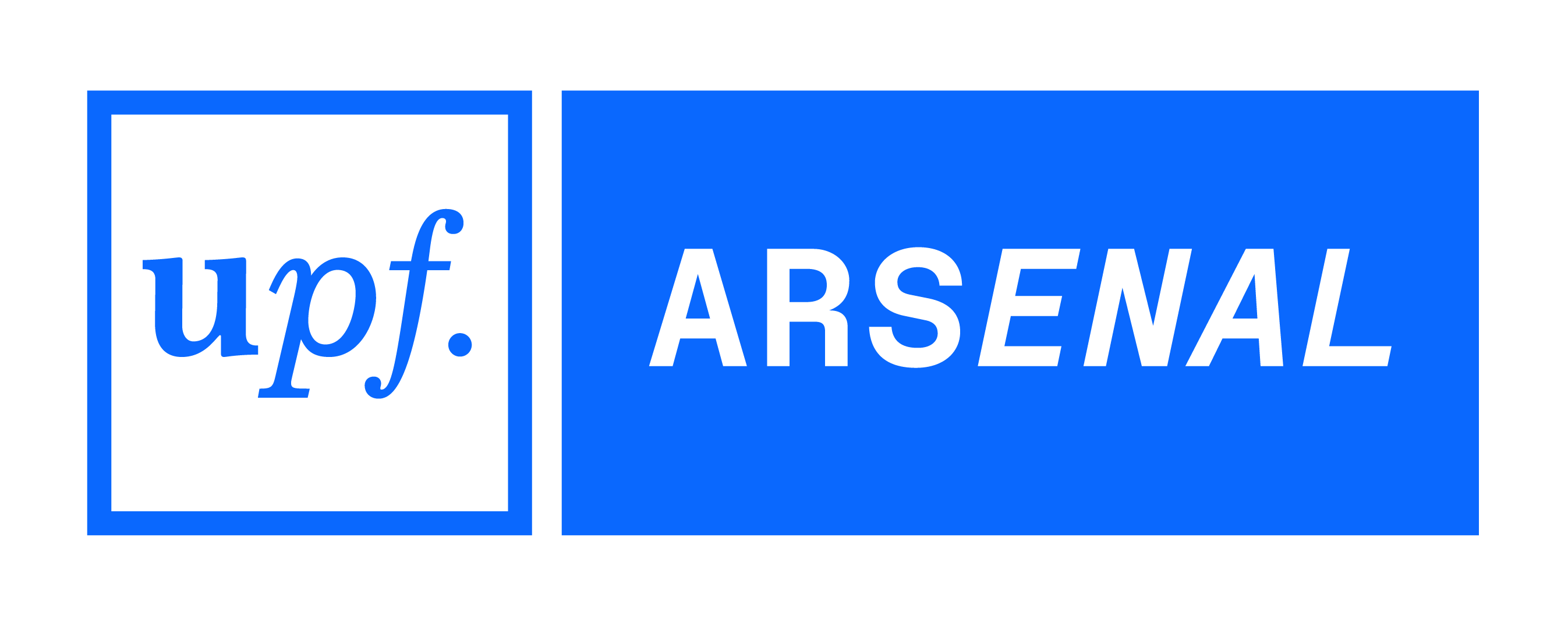Des del campus
6. From campus
ARSENAL aims to project the university’s talent and innovation outwards
The ARSENAL ecosystem supports academic work and projects by UPF students and alumni with a view to enabling their transfer to society in the form of products or services. At the same time, it helps the university keep its finger on the pulse of the latest innovations and trends. The Department of Communication launched the new ecosystem over a year ago and plans to expand it to include projects from other knowledge areas.
How to promote the most creative and innovative ideas and young talent? How to make it easier for more projects and academic work to go beyond the university’s walls? These are central questions in UPF’s strategy to transfer the knowledge generated at the university to society. In the university’s Department of Communication, this reflection led to the creation of the ARSENAL ecosystem, launched in the 2022-2023 academic year to support UPF students or alumni seeking to transform their academic project into a work, product or service with an economic, social or cultural impact.
The starting point for this journey can be a bachelor’s or master’s degree final project, a doctoral thesis or projects not strictly designed within these academic parameters. Jordi Balló, head of the UPF Department of Communication and promoter of the new ecosystem, emphasized its open-minded approach. ‘ARSENAL is a porous territory open to any innovative project with transfer potential’, he said. In fact, it aims to incorporate research and projects from any of the university’s departments and to collaborate with research and creation groups outside academia. Balló co-directs the ARSENAL ecosystem together with the dean of the UPF Faculty of Communication, Carles Pont.
Jordi Balló, head of UPF’s Department of Communication: ‘ARSENAL is a porous territory open to any innovative project with transfer potential’
ARSENAL is defined as an ecosystem because it aims to facilitate interrelationships between the various people and groups that promote innovation and transfer in different sectors and fields of knowledge. The space assigned to ARSENAL, in the La Nau building on the Poblenou campus, also helps materialize this ‘human geography’ of personal relations, Balló explained.
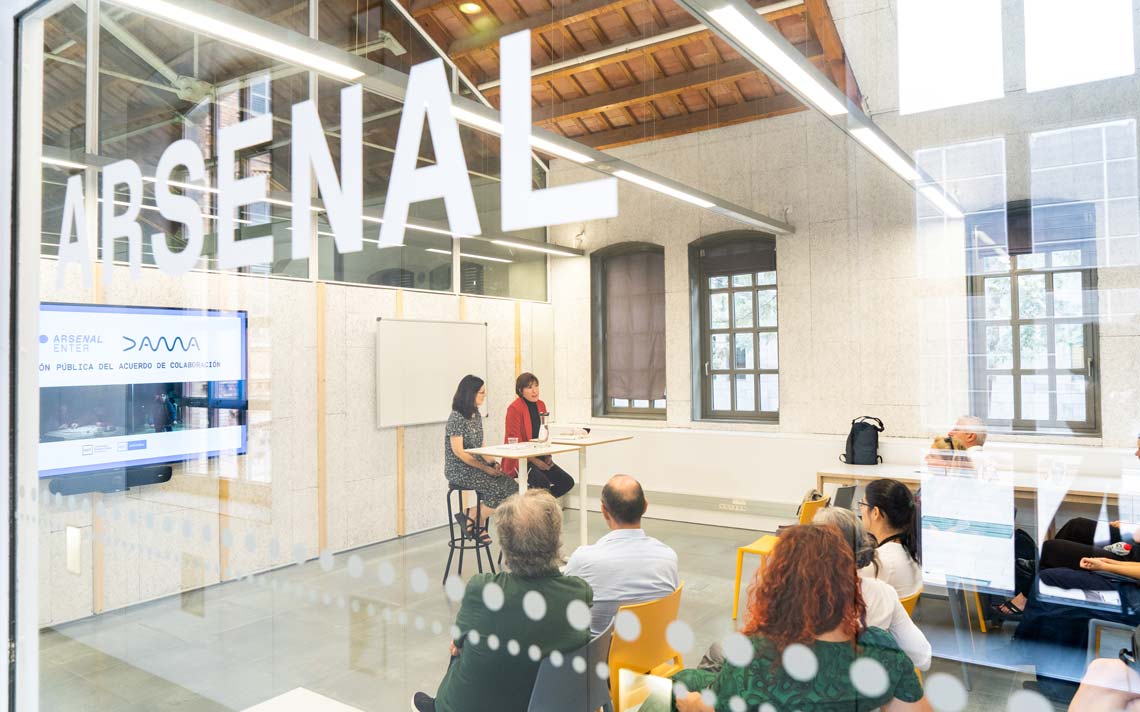
The name of the ecosystem was chosen to express its plurality. ‘We were looking for a multifaceted name that meant many things at once’, said Balló. ARSENAL refers to multiple concepts linked to visual culture. It is the name of the headquarters of Institute for Film and Video in Berlin; the title of a Soviet film from 1929; and the venue for the most experimental part of the Venice Art Biennale. It is also the name of a legendary television programme on the latest artistic and cultural trends directed by Manuel Huerga in the early years of the Catalan broadcaster TV3.
The idea for ARSENAL did not come out of nowhere. It can trace its origins to the laboratories created a few years earlier to promote the university’s relations with the world of research and transfer, as well as seed projects by communication students with a broad applied component. ARSENAL also provides continuity to transfer work undertaken by the tutors of applied bachelor’s and master’s degree final projects and doctoral theses.
Andrea Olmedo, ARSENAL project manager: ‘Innovation is understood not only in technological terms, but also in terms of creativity, narrative, aesthetics, etc.’
Those libraries would gradually give rise to the idea of building a more robust system to support innovative projects by students and alumni with the potential to go beyond the university’s gates. But how to determine whether or not a project is innovative? This was one of the questions the ARSENAL team had to answer. In the end, they decided to conceive of innovation in a broad sense. ‘Innovation is understood not only in technological terms, but also in terms of creativity, narrative, aesthetics, etc.’, explained the ARSENAL project manager Andrea Olmedo. Another of the ecosystem’s core values is to support ‘projects oriented towards social transformation, defending the environment, women’s rights, planetary wellbeing, etc., with a translocal perspective, partnering with NGOs, associations or companies’, Olmedo added.
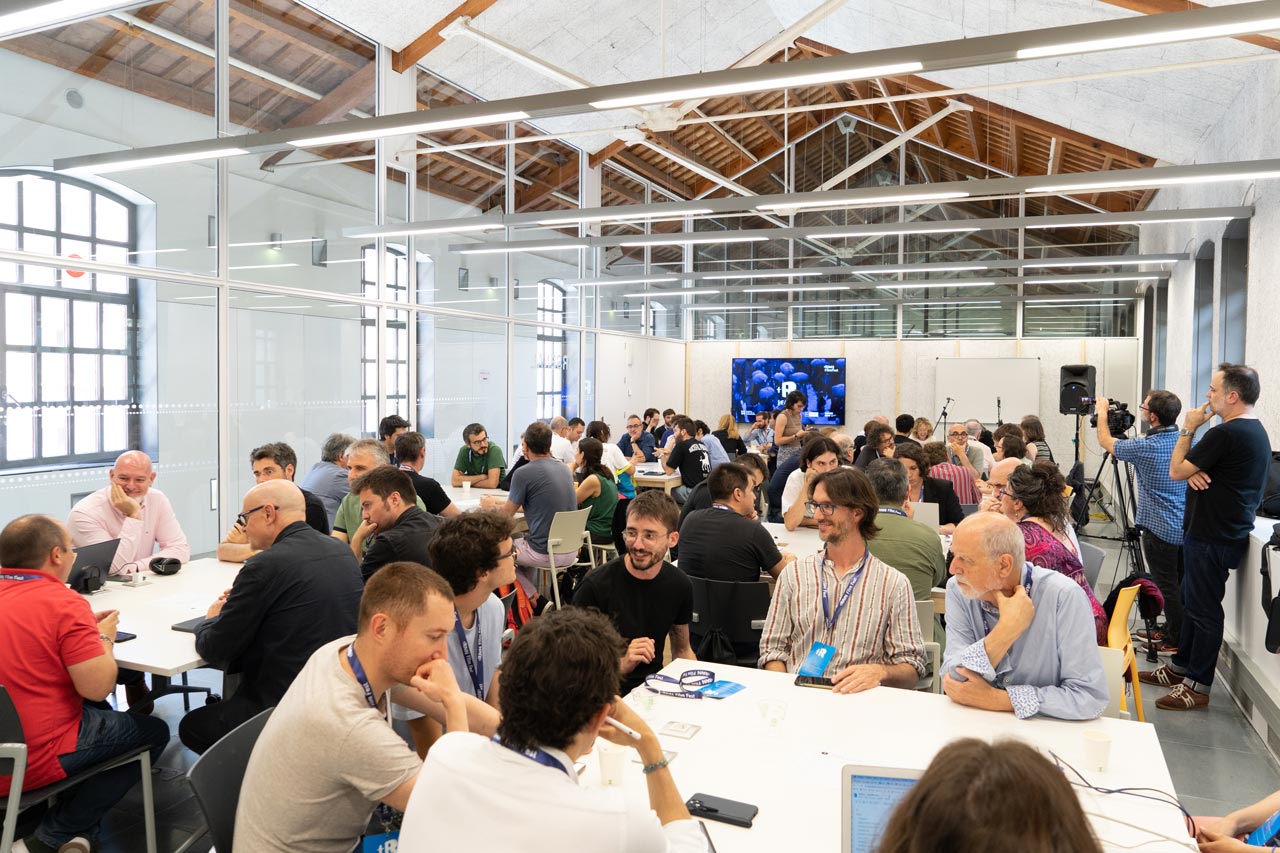
ARSENAL offers assistance tailored to each project’s needs
Once ARSENAL’s essential criteria and values had been defined, it was necessary to specify how it would support the academic work and projects in the transfer process. According to Olmedo, it was decided to do so in a more ‘flexible’ and ‘personalized’ way than traditional project incubators. First, a diagnosis is performed of each project to identify the strategic actions to be taken to ensure its autonomous continuity in the professional sphere. Then, a flexible timetable is established, adapted to the pace of each work team.
Through ARSENAL, work teams can choose from a wide range of aid depending on their needs: physical spaces and equipment, financial and material resources, legal, technological and other forms of support, or advice and mentoring by professionals and experts on various subjects. For example, with an audiovisual project, a mentor might be sought to help promote the project at film festivals or the work team might be given access to audiovisual creation laboratories.
Technical and financial support is provided, as well as support to foster group cohesion
ARSENAL is also seeking different ways to provide funding for projects, combining the university’s own funds with the collaboration of other public and private actors. At the start of this academic year, it signed an agreement with DAMA, the organization authorized by the Spanish Culture Ministry to manage the intellectual property rights of the authors of audiovisual works. Under the agreement, the two organizations would collaborate on the development and funding of films, shorts, documentaries and projects in multimedia digital formats developed by UPF students and alumni. The ARSENAL team also advises work teams on the different funding calls they can apply for and provides them with support in completing the requisite steps.
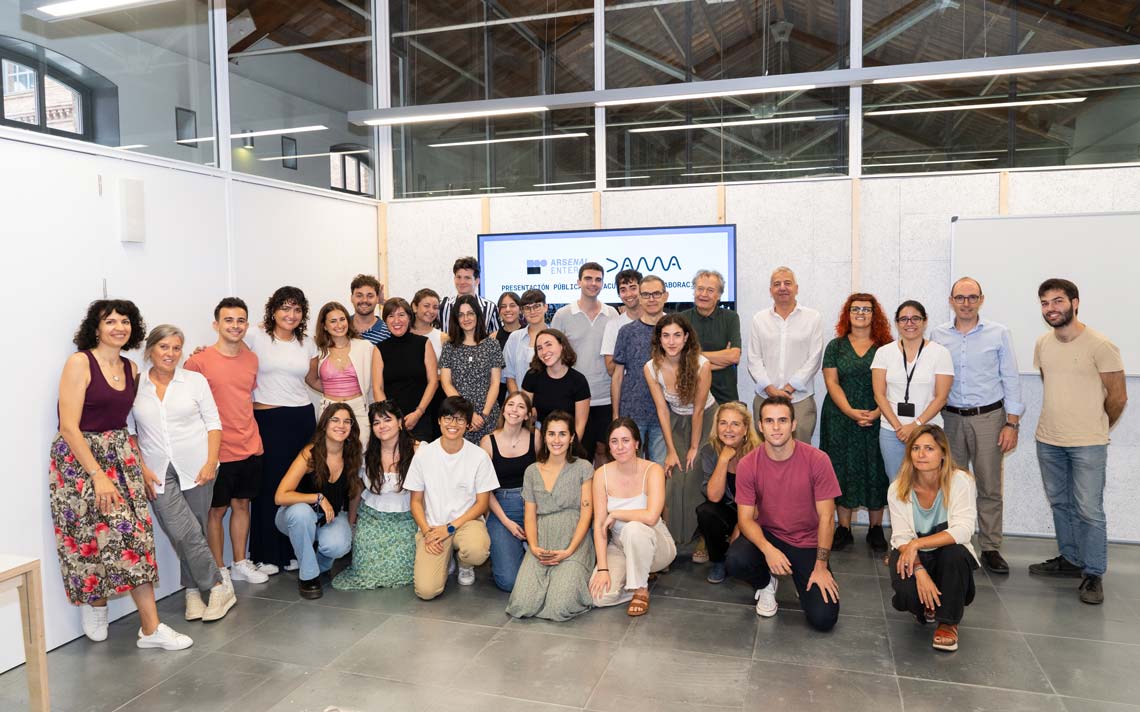
According to Balló, many of these calls exclude certain groups with great creative potential, usually social minorities. Many of these groups, which are often discriminated against on grounds of gender, race, ethnic origin or social class, are unable to meet some of the requirements for the calls because they do not have the necessary documents to do so or lack the technical or financial capabilities to propose the project as required in the conditions, etc. Consequently, he stresses the need to ‘fund groups rather than projects, to support minority talent’ and thus complement the current grant model.
Beyond financial and material support, the ARSENAL team focus on the need to provide methods and resources for group work in order to encourage work groups to stay together despite the trend towards dispersion and individualism that continues to predominate in the professional world.
ARSENAL currently consists of four platforms linked to different knowledge areas
Although the aforementioned criteria and action lines are common to the entire ecosystem, the specificities of each field of knowledge have made it necessary to define four different platforms to date, and others may be added in the future. The ecosystem currently has the following platforms: ENTER (audiovisual communication), LEAD (journalism), REACT (advertising and public relations) and ADVANCED (doctoral theses and master’s degree final projects involving applied research in any of the foregoing fields). To date, the ENTER, LEAD and REACT platforms have mainly been used to support bachelor’s degree final projects.
ENTER, the audiovisual communication and digital creation platform
It was the ENTER platform that signed the agreement with DAMA last September. So far, since the start of the 2022-2023 academic year, it has supported nine audiovisual projects, including five fiction or documentary feature films, three shorts, and one multi-format multimedia artistic performance.
The projects are characterized by a great diversity of proposals and formats. However, if there is one thing many of them share, it is that they have ‘a very strong personal dimension and visualize feminisms, new family models, gender diversity, etc.’, explained Albert Elduque, director of the Audiovisual Communication studies and co-coordinator of the platform along with the director of that degree programme, Mercè Oliva. Elduque believes the reasons for this are twofold. ‘Students are much more aware of this issue today than they were ten years ago, and the degree programme has also been incorporating the gender perspective’, he said. Some of these audiovisual projects deal with issues related to drag culture, new family models, sexual desire, etc. In fact, the short film about Barcelona’s drag community Nocturnas (by Pau Canivell, Ruben García and Maria Sánchez) is currently in the final stages and is about to be distributed at film festivals.
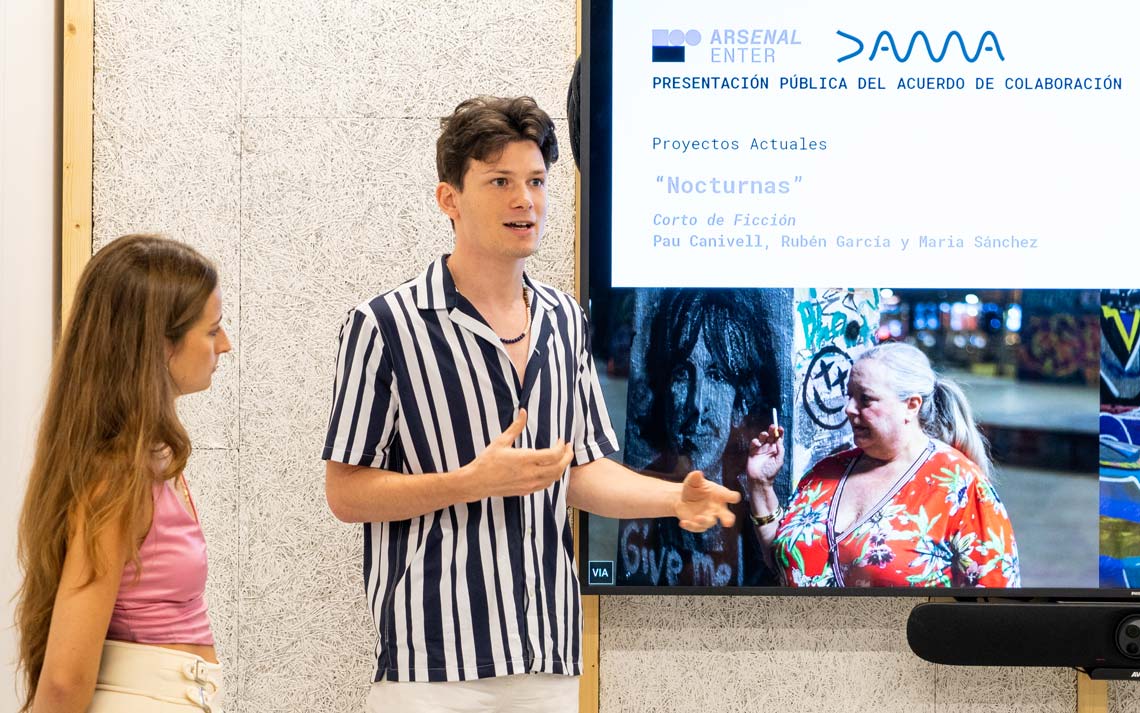
Promoting young talent so that it can use its creativity in the audiovisual field has been a goal of the Faculty of Communication for many years, especially since the 2015 turning point marked by the feature film Les amigues de l’Àgata [Àgata’s Friends]. The film was the result of the bachelor’s degree final project of the alumnae Laia Alabart, Alba Cros, Laura Rius and Marta Verheyen and went on to win awards at several festivals. Since then, many audiovisual projects that got their start in UPF classrooms have made it to the big screen. What will change from now on is that the ENTER platform will provide more organizational muscle and resources to ‘strengthen, structure and systematize’ the support for these audiovisual projects, concluded Elduque.
The adventure of bringing a personal and family struggle to the big screen
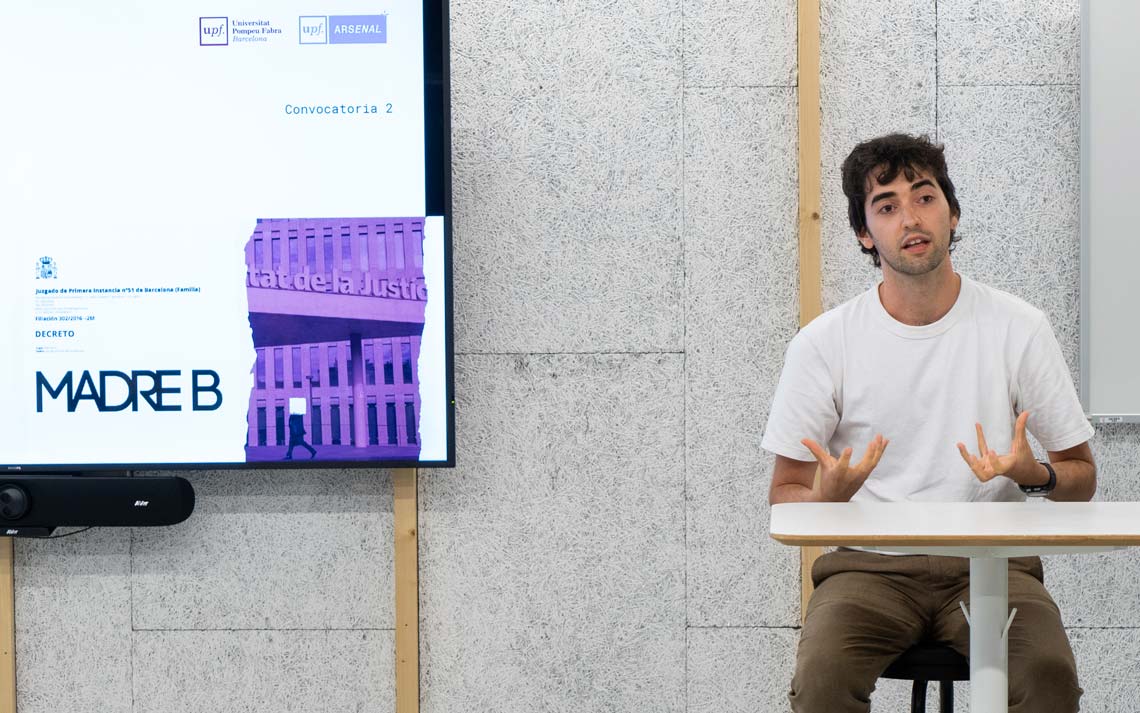
Gerard Gil, who studied audiovisual communication at UPF from 2016 to 2020, had time to reflect on the idea that would inspire his feature film Madre B [Mother B] during the lockdown following the outbreak of the Covid-19 pandemic. ‘The project grew out of the personal need to explain a family experience: how my mothers and I fought to get the Spanish justice system to recognize our family model.’ One of Gerard’s two mothers (the one who had not been pregnant with him) was not legally recognized as such; the family’s struggle to achieve that recognition was the catalyst for the project.
Although he has previous experience in the audiovisual field, Gerard, who is 24 years old, considers Madre B his most personal project to date. He is currently ‘fully immersed in writing the script’ and ‘looking for producers’ to help him bring the project off. The ENTER-ARSENAL platform has already advised him on the funding he can apply for in this early stage of the project. ‘Later on, I’ll receive tutoring and mentoring sessions from different audiovisual professionals.’ To develop the project, he explained, the guidance of professionals with expertise in both screenwriting and advocacy and comparative law is essential.
In the future, Gerard hopes to get more people involved in the project, as he views film as ‘a great collective act’. ‘Cinema is a great shared event to meet up with each other, to generate debate, to encourage criticism and to excite’, he said. He believes his time at UPF ‘was key to discovering [my] vocation for the audiovisual world’ and opening his eyes to ‘opportunities [he] had not foreseen’, especially in relation to the constant technological innovations in the industry.
LEAD, the journalism platform
The UPF Faculty of Communication has also been promoting knowledge transfer to society in the field of journalism for some time. One of the most tangible examples is the Diari de Barcelona (DdB), the historic newspaper revived by UPF almost four years ago. The publication has been reporting daily on local and national current affairs through digital channels ever since, thanks to a newsroom made up mostly of journalism students, under the coordination of an editorial team of professional journalists.
Since ARSENAL’s launch, ‘the Diari de Barcelona has been fully integrated into the ARSENAL-LEAD platform’, explained Xavier Ramon, director of studies for the bachelor’s programme in Journalism and manager of the platform, together with Roser Cassany (co-coordinator of the DdB) and Marcel Mauri (director of the bachelor’s programme in Journalism). According to Ramon, LEAD especially collaborates with the Diari de Barcelona to achieve one of its main objectives, namely, ‘to imagine new territories for the production and dissemination of content that reinforce the medium’s news proposition’.
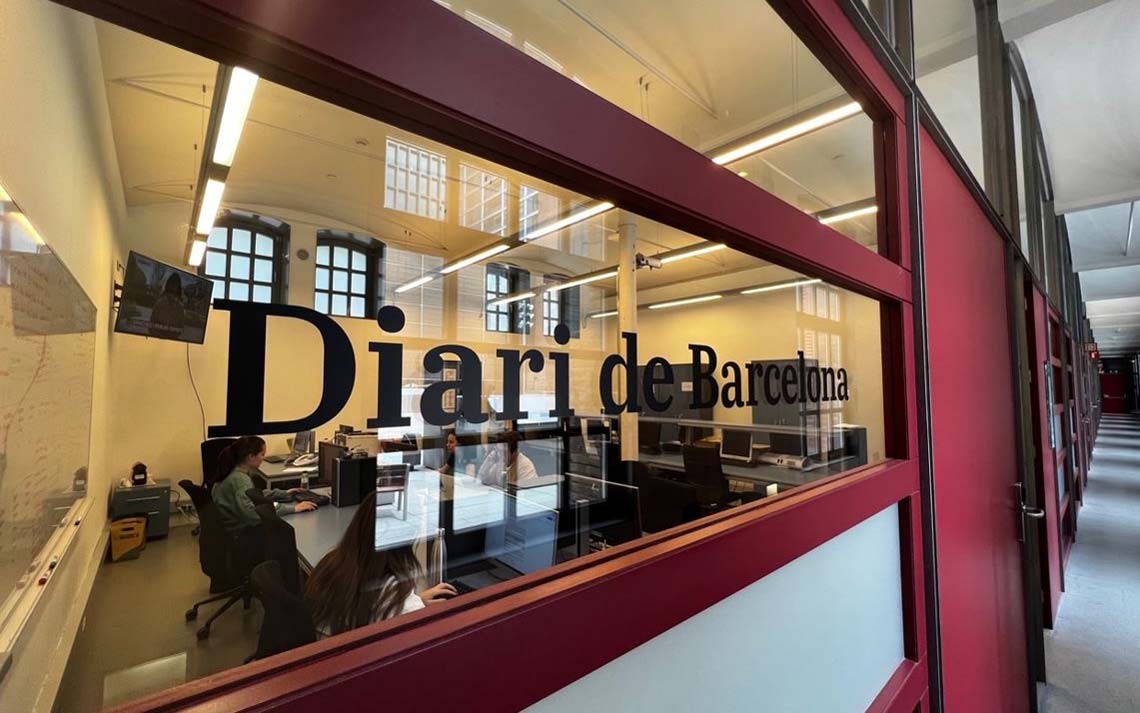
The LEAD platform will help reinforce some of the lines of work already undertaken by the DdB, such as filming events with 360º cameras. ‘This allows viewers to decide which angle they want to watch the events from. It is very useful when visualizing the physical environment from different perspectives is of news value’, explained Andrés González-Nandin, one of the Diari de Barcelona coordinators. To date, the DdB has experimented with this technology especially during the live broadcasting of demonstrations, such as the one held on Women’s Day (8 March) in 2023. At other demonstrations, it has tested another technical solution, namely, multicamera live broadcasting in an ultralight format, provided and tested by the LEAD platform. The new system enabled various DdB editors to broadcast live the images they recorded with their phones from different points of the demonstration.
To make it easier for students to experiment with these new techniques, the Diari de Barcelona plans, in coordination with the LEAD platform, to promote projects targeted at students interested in experimenting with the 360º camera.
In addition to collaborating with the Diari de Barcelona, Ramon explained, the LEAD platform has undertaken two other action lines: providing support for innovative bachelor’s degree final projects in the field of journalism to help ‘raise their profile in social and professional spheres’ and ‘creating a point of exchange and connection between news companies and the university’.
REACT, the advertising and public relations platform
Through the REACT platform, the ARSENAL ecosystem also aims to help project innovation in the field of advertising and public relations. The platform is coordinated by Lluís Mas, director of studies for the bachelor’s degree programme in Advertising and Public Relations, with the support of Mònika Jiménez, the programme’s director. According to Jiménez, the goal is to leverage the platform ‘to introduce students to the world of applied research’.
Recently, two new lines of research were launched in these disciplines at the university. The first aims to investigate the impact on adolescents’ mental health of messages spread by influencers on social media and is being conducted in collaboration with the Open University of Catalonia (UOC). The second, more related to public relations, will look at how to improve communication strategies between medical professionals and their patients.
In both cases, consideration has been given to the possibility of using the research, funded by the Spanish Ministry of Science and Innovation, to create teaching materials or guides with recommendations for the education or healthcare sectors. Students involved in these research projects will thus also be able to participate in the transfer of the results between professionals in these sectors.
ADVANCED, the platform to support applied doctoral theses and master’s degree final projects
According to Frederic Guerrero Solé, a full professor in the Department of Communication and co-coordinator of the ARSENAL-ADVANCED platform with Carles Sanabre, also a professor in the Department of Communication, ‘encouraging research to incorporate the desire to transfer knowledge to society from the start’ is also part of ‘the new interpretation of what a project in academia means’ that the ADVANCED platform seeks to promote. Convinced of the need for this paradigm shift, he explained how some theses in this field of knowledge have already begun to incorporate this perspective.
One of the first theses to receive support from the ADVANCED platform was Carla Molins Pitarch’s (see highlight), which resulted in the creation of an interactive installation allowing viewers to experience the 3D human genome from a phygital perspective (i.e. one combining elements from the physical and digital worlds). In addition to Molins Pitarch’s thesis, which has already been defended, another thesis is currently being written ‘with a strong component of not just social, but also industrial transfer’, Guerrero Solé said. He was referring to Jorge Caballero’s thesis, which includes the development of AI editing tools.
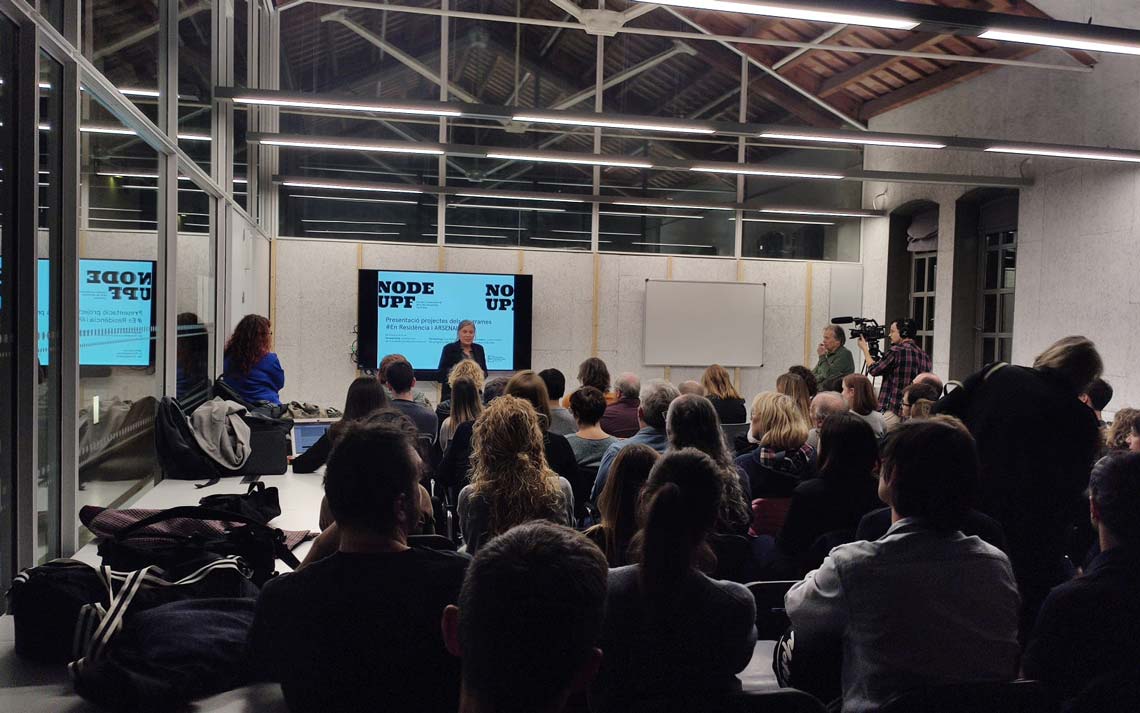
An interactive installation to represent and interact with the human genome that grew out of a doctoral thesis
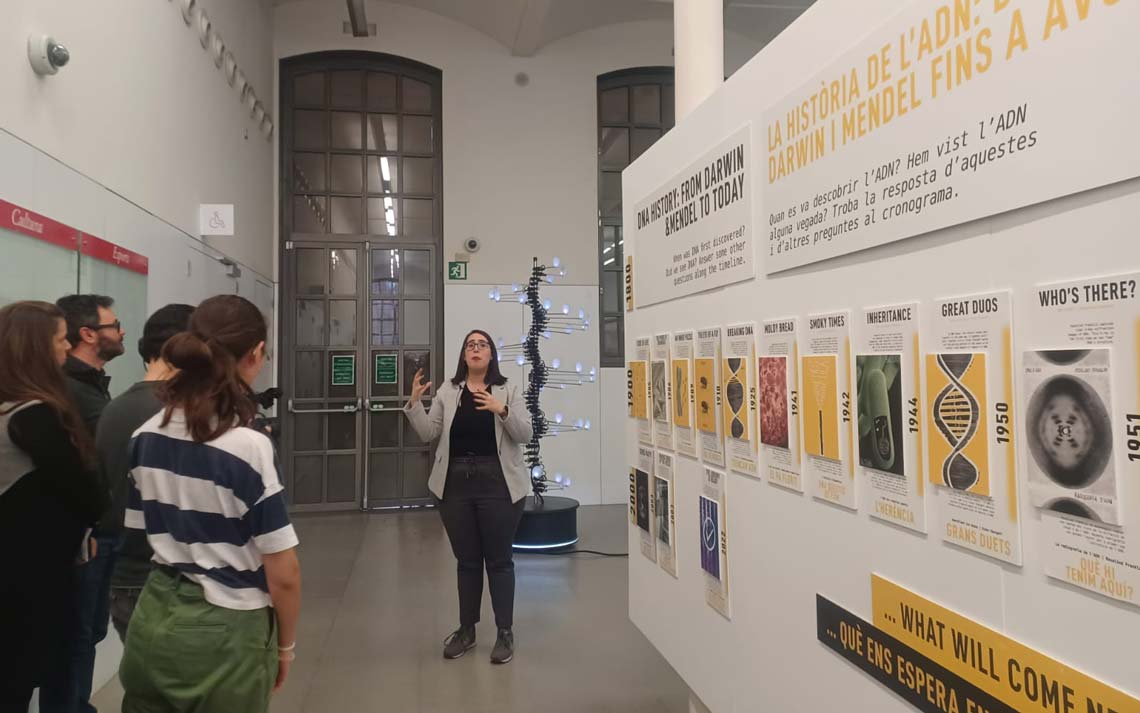
To research how to apply different design methodologies to represent and display various topics in cellular and molecular biology in an interactive and experiential way. This was the aim of Carla Molins Pitarch’s applied doctoral thesis, which was co-supervised by the UPF Department of Communication and ELISAVA and received a European Marie Curie grant within the European ChromDesign project (ELISAVA Research).
The research resulted in the creation of an interactive installation representing the three-dimensionality, modularity and materiality of the human genome, accompanied by an exhibition that contextualizes the research and makes the biology of ChromDesign more accessible to society. The exhibition with the interactive installation was presented at ELISAVA (2022) and the Barcelona Biomedical Research Park (PRBB) (2023), before arriving late last year at UPF’s Poblenou campus.
Part of the exhibition, including the interactive installation, was on display in November and December 2023 at that campus’s Library/CRAI. The ARSENAL ecosystem helped set up the exhibition space, under the supervision of Matilde Obradors, head of culture at the Department of Communication.
‘There is still a lot of room for research on new ways of representing DNA’, Molins Pitarch explained, discussing her line of research, which she is conducting as part of the European ChromDesign project. Even the defence of her doctoral thesis was innovative, as it began in the Library’s exhibition space, coinciding with the show’s inauguration. Her experience marks a turning point in the conception and presentation of the results of a doctoral thesis and has opened a new line of work in the UPF Department of Communication.
ARSENAL consists of cross-disciplinary programmes to drive the most innovative trends from the university
Within this ecosystem, the ARSENAL platforms co-exist with cross-disciplinary programmes. Whilst the platforms support creators and researchers, helping them transfer the results of their projects and research to society, the programmes seek to support broader, cross-disciplinary innovative processes connected to external actors, based on the idea that the university must be a driver of social and cultural change.
The first programme led to the creation of +RAIN, the first European AI-generated film festival
To date, two programmes have been launched within the ARSENAL ecosystem. One has led to the creation of the first European AI-generated film festival, the +RAIN Film Festival, the other to the launch of an incubation programme for alternative or indie videogames (GAMEPLAY). Both initiatives are being carried out in collaboration with the In Residence programme, which seeks to incubate innovative projects by UPF students and alumni, who are afforded spaces in the Tallers area of the Poblenou campus, dedicated to knowledge management and cultural production.
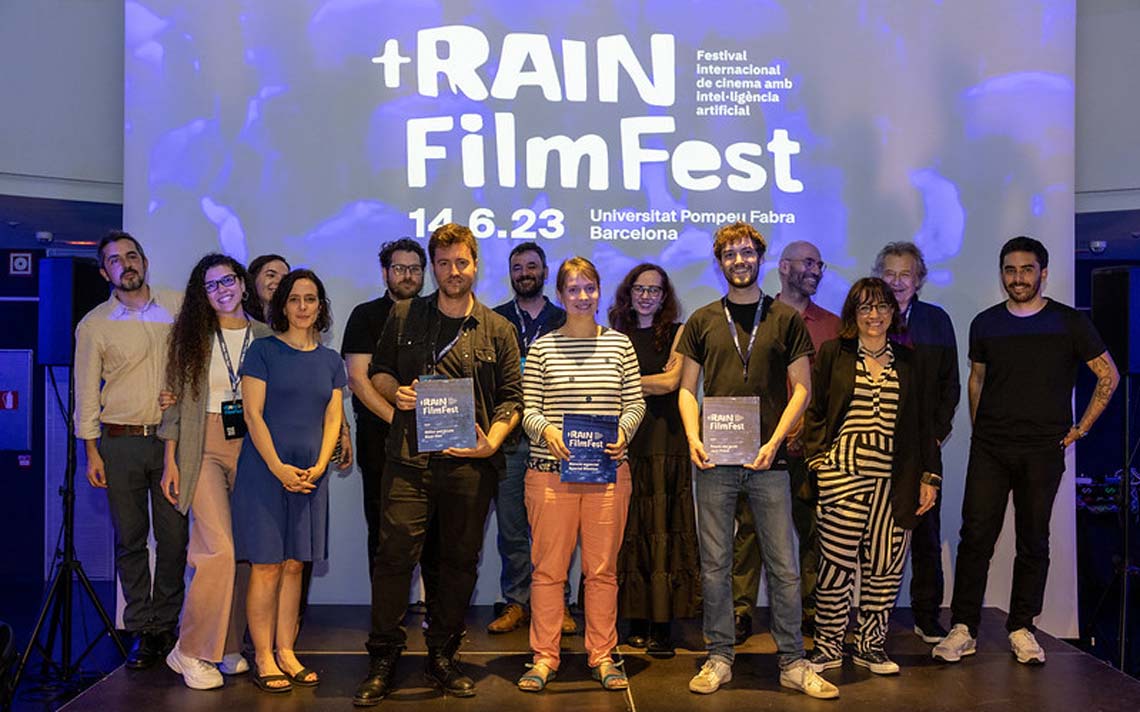
The +RAIN Film Festival, which was held for the first time on 14 June 2023 on that same campus, is promoted by Pompeu Fabra University and ARSENAL and co-organized with UPF Ventures (an innovation management company) and the affiliated centre UPF-Barcelona School of Management, within the framework of the Sónar+D programme. The +RAIN Film Festival management team at UPF is made up of Balló, Guerrero Solé, Anna Giralt and Coloma Ballester.
The +RAIN Film Festival, whose second edition is already in the pipeline, aims to be, above all, a forum for reflection and experimentation with the possibilities and ethical, aesthetic and political implications of the use of AI in the field of audiovisual creation. In fact, the 2023 edition of the festival combined the section dedicated to the screening of the ten finalist films (FEST) with others focused on reflection and debate (RESEARCH) or live AI-generated music and audiovisual proposals (LIVE), as well as a venue for professional exchange (FAIR).
Anna Giralt Gris, the current co-director of +RAIN and co-director of the FEST section of its first edition along with the Department of Communication professor Alan Salvadó, highlighted the fact that the event has sparked debate on the risks and opportunities of AI in the field of audiovisual creation, a phenomenon that is still in its infancy. New trends in the field of communication and visual arts underscore the need ‘to hybridize different fields of knowledge’, explained Giralt Gris, who also co-founded the film production company GusanoFilms and the Artefacto film and technology research, creation and production centre. According to Balló, ‘The first edition of +RAIN resulted in an unprecedented degree of collaboration between the Department of Communication and the engineering studies in the Department of Information and Communication Technologies (DTIC).’
The second programme is dedicated to indie videogames
One example of the growing hybridization between the fields of communication and technology is Arsenal’s second cross-disciplinary programme, GAMEPLAY, dedicated to the world of videogames. It is ‘an incubation programme for videogames that aim to explore unconventional paths, whether from a thematic, narrative, formal or artistic point of view’, explained Oliver Pérez, the project’s coordinator. This indie videogame incubator is headquartered on UPF’s Poblenou campus and also receives support from the In Residence programme, coordinated by Teresa Roig.
The project considers it essential to incorporate young people’s more alternative and innovative views into the world of videogames, whilst at the same time enriching their knowledge by introducing them to academic research in the field of game studies. GAMEPLAY provides support to students whose bachelor’s degree final projects are related to the world of videogames, as well as to recent graduates seeking to continue such projects.
These projects have led to the creation or current development of indie videogames that offer alternative narratives to the dominant discourse or are more oriented towards game art, which places special emphasis on the artistic dimension of the audiovisual proposal. The platform is also supervising an applied doctoral thesis on the relationship between the world of film and videogames, which includes the creation of an essayistic videogame (to explain the content of the research in an educational, play-based and interactive way), and providing support to another project resulting from an open call for proposals from women creators of critical games.
For Pérez, a lecturer with expertise in game studies at the UPF Faculty of Communication, the project is based on a critical approach to the global videogame industry, which is often wary of anything that ‘sounds commercially risky’, as well as the challenge of delving deeper into and improving on issues related to ‘gender inequality, gamer sexism, thorny aspects of ludo-capitalism...’. However, that does not mean that the project ‘conducts its reflections from an ivory tower’, but rather that it seeks to promote change with the help of professionals and experts from the industry.
The desire to engage in dialogue with the various social, economic or cultural players that drive innovation outside UPF’s walls is part of the essence of the ARSENAL ecosystem. Going forwards, it will continue to forge connections in order to enable the university’s talent and innovation to circulate beyond its walls.
What are the goals of ARSENAL’s four current platforms?
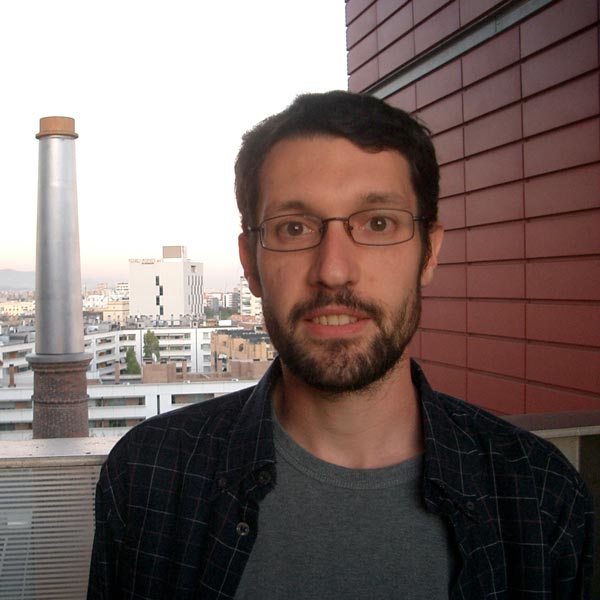
Albert Elduque, representative of the ENTER platform (Audiovisual Communication and Digital Creation)
‘One of our main goals is for the teams to feel supported and to stay together, despite the trend towards dispersion in the professional world, as we believe in the importance of collective creation in the audiovisual world.’
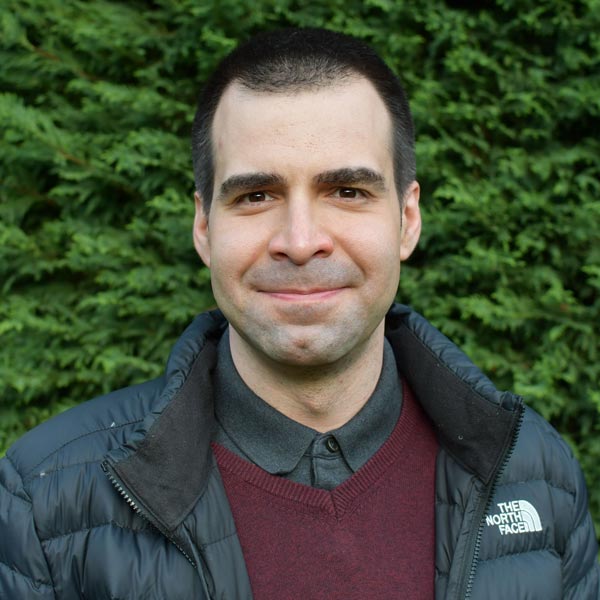
Xavier Ramon, representative of the LEAD platform (Journalism)
‘ARSENAL-LEAD is conceived of as a space for journalistic innovation and experimentation with emerging technologies, formats and narratives [...]. Examples of the kinds of projects it might support include feature stories, television and radio programmes, interactive features, documentaries, podcasts and multimedia applications.’

Mònika Jiménez, representative of the REACT platform (Advertising and Public Relations)
‘We want to familiarize students with the value of research and transfer from the moment they enter the university, so they can become involved in research projects as undergraduates and can end up contributing innovative ideas, products and services to the world of advertising and public relations.’
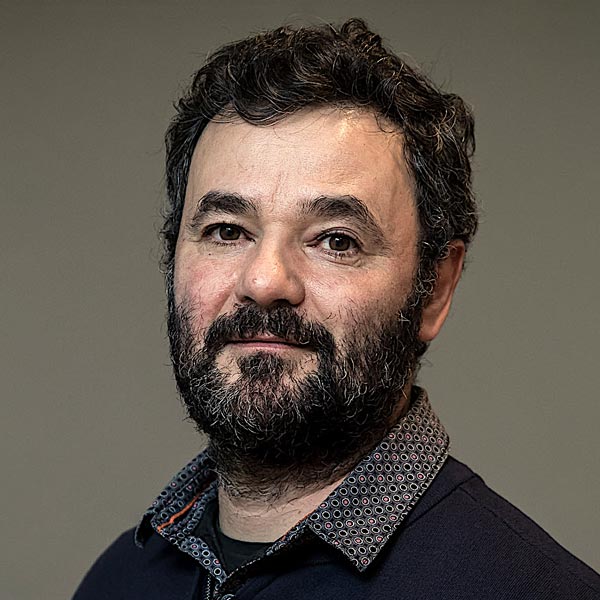
Frederic Guerrero Solé, representative of the ADVANCED platform (applied doctoral theses and master’s degree final projects)
‘ARSENAL-ADVANCED is designed to support doctoral and master’s students who not only submit written work, but also incorporate what we call a project, which can adopt a wide variety of formats, such as prototypes, computer developments, virtual environments, exhibition material or audiovisual creations.’
ARSENAL projects to promote the most innovative trends
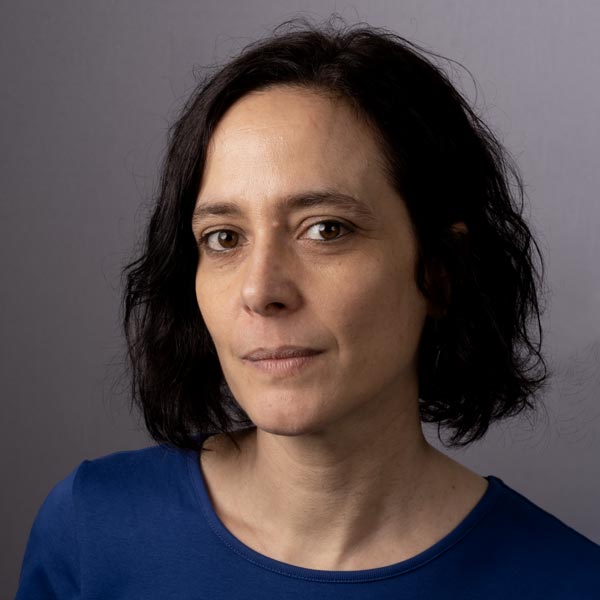
Anna Giralt, co-director of the +RAIN Film Festival
‘We live in a disruptive time. The first edition of RAIN opened a space for reflection and debate on what has begun to be done with artificial intelligence in the world of film, on its opportunities and risks. But we have to continue to encourage this debate and open it up to a wider range of actors and professionals.’
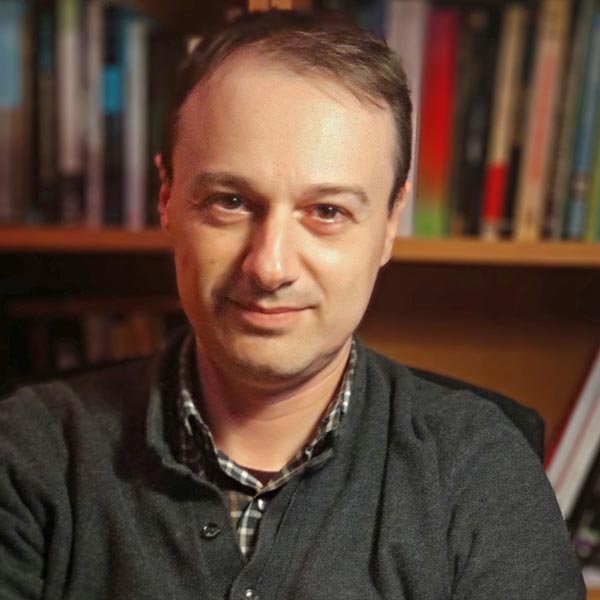
Oliver Pérez, head of the GAMEPLAY programme
‘GAMEPLAY is an incubation programme for videogames that embrace the connection between young creators and game studies in order to promote innovative, alternative, critical and experimental videogame projects. We believe that the intersection between young people’s creativity and academic reflection is an ideal place from which to promote new ideas and grow projects that aim to be transformative.’

